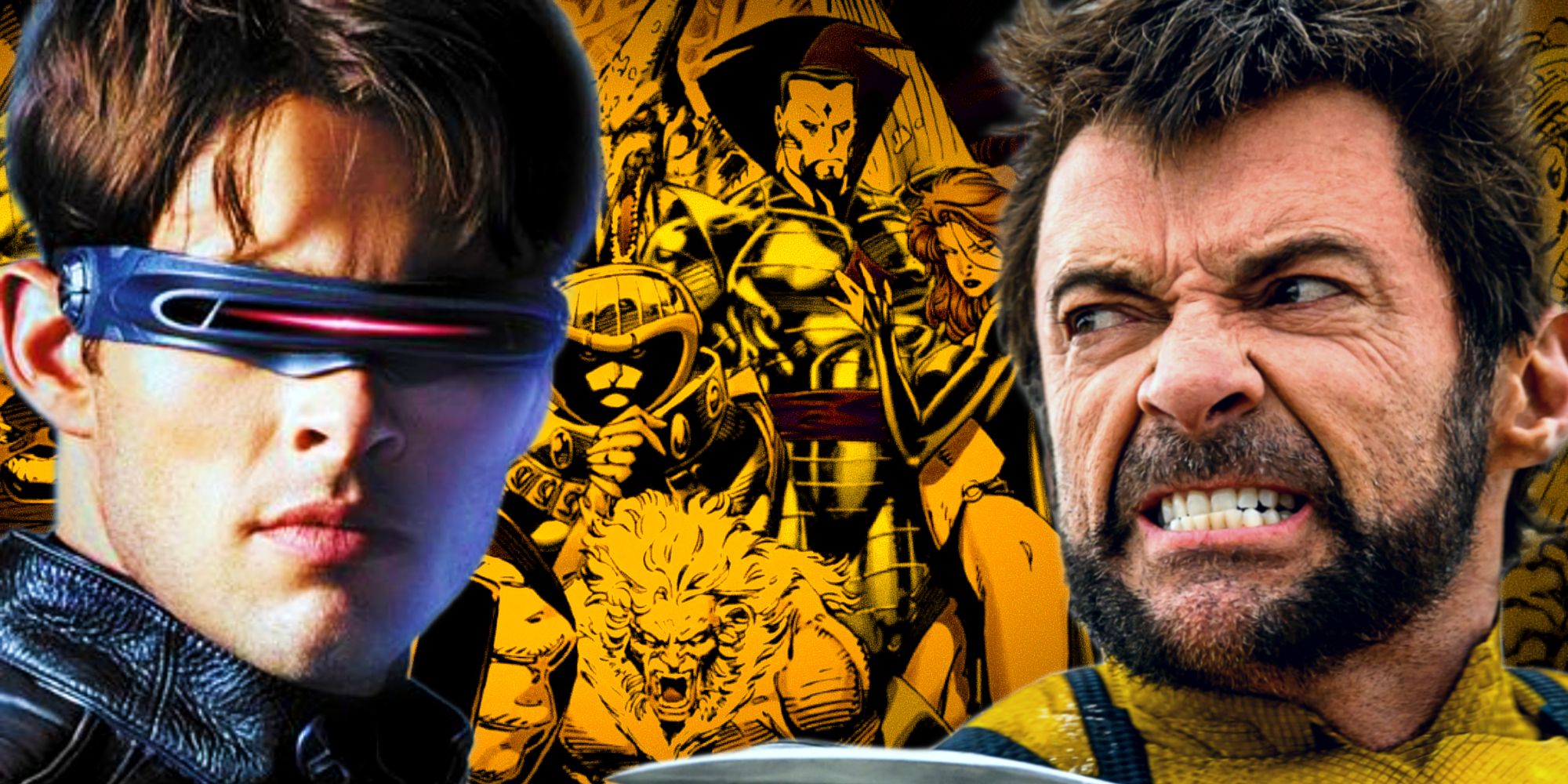I'm Convinced the X-Men's MCU Debut Will Flop If Marvel Doesn't Embrace 1 of Its Greatest Villains ASAP
Quick Read
## X-Men in the MCU: Why It Might Bomb (And How to Save It!)
Marvel's bringing the X-Men to the MCU, and the hype is real. But there's a big risk: a forgettable debut. The key to avoiding disaster? Embrace a truly *great* villain.
Forget generic threats. The X-Men's stories are often defined by compelling antagonists with complex motivations. Think Magneto and his fight for mutant survival, even through extreme means.
Without a villain who challenges the X-Men on a deep, philosophical level, the MCU's X-Men could easily fall flat. It's time for Marvel to ditch the cookie-cutter bad guys and unleash a powerful, morally ambiguous force that truly tests the heroes' ideals. Otherwise, expect a major mutant misfire.
X-Men's MCU Debut: Why a Great Villain is Key to Success
The Marvel Cinematic Universe (MCU) is gearing up to introduce the X-Men, and fan anticipation is reaching fever pitch. However, some industry observers are raising concerns that the debut might fall flat if Marvel Studios doesn't capitalize on one of its greatest villainous assets early on. A compelling antagonist is essential to setting the stage for the X-Men's grand entrance and ensuring its long-term success within the MCU.
Why a Strong Villain Matters
The success of any superhero franchise hinges not only on its heroes but also on the quality of its villains. Memorable antagonists provide the central conflict, drive the narrative, and challenge the heroes in profound ways. In the case of the X-Men, a roster of complex and morally ambiguous villains has been pivotal to their comic book legacy. These characters aren’t merely mustache-twirling evildoers; they are often driven by understandable, if extreme, motivations, creating a dynamic that resonates with audiences.
Consider Magneto, perhaps the most iconic X-Men villain. His belief in mutant superiority, born from his traumatic experiences as a Holocaust survivor, provides a compelling counterpoint to Professor X's dream of peaceful coexistence. This ideological clash forms the bedrock of the X-Men's central conflict, exploring themes of prejudice, discrimination, and the struggle for acceptance.
Ignoring this depth would be a mistake. A shallow, generic villain would fail to capture the complexity and nuance that has defined the X-Men's narrative for decades.
The Need for More Than Just a Fight
The MCU has delivered memorable villains, such as Thanos, who posed a significant threat and had a clear motivation. However, some argue that more recent antagonists have lacked the same depth and impact. For the X-Men's debut to be truly successful, Marvel needs to present a villain who is not just a physical threat but also an intellectual and emotional one.
Here's why a well-developed villain is crucial:
* Creates compelling conflict: A strong villain challenges the X-Men's beliefs and forces them to confront difficult choices.
* Explores thematic depth: The villain can embody the social and political issues that the X-Men stories often tackle.
* Enhances character development: The heroes' interactions with the villain reveal their strengths, weaknesses, and values.
Who Could Be the Big Bad?
Several iconic X-Men villains could potentially fill this role, each offering unique opportunities for storytelling. Magneto is the obvious choice, given his established history and complex relationship with Professor X. However, other contenders include:
* Apocalypse: A powerful ancient mutant who believes in survival of the fittest, posing a major physical and ideological challenge.
* Mister Sinister: A manipulative geneticist with a twisted vision for mutant evolution, offering a more insidious and psychological threat.
* The Sentinels: Mutant-hunting robots that embody the fear and prejudice directed towards mutants, providing a relevant social commentary.
Each of these villains brings unique strengths to the table. The key is to choose a villain whose motivations and actions align with the overall themes and direction Marvel wants to establish for the X-Men within the MCU.
Avoiding a Rushed Introduction
One of the biggest concerns is that Marvel might rush the introduction of the X-Men, focusing on action and spectacle over character development and narrative depth. This could lead to a watered-down version of the X-Men, lacking the complexity and nuance that fans have come to expect.
To avoid this pitfall, Marvel needs to take its time and build a strong foundation for the X-Men's presence in the MCU. This includes:
* Establishing the socio-political context: Showcasing the world's reaction to the emergence of mutants and the discrimination they face.
* Developing the characters: Giving each X-Men member a distinct personality, backstory, and motivation.
* Crafting a compelling storyline: Introducing a villain who challenges the X-Men on multiple levels and drives the narrative forward.
The stakes are high. A poorly executed X-Men debut could damage the franchise's reputation and alienate long-time fans.
Conclusion: A Villain-Driven Future?
The success of the X-Men's MCU debut hinges on Marvel's ability to embrace the franchise's rich history of compelling villains. By focusing on character development, thematic depth, and a strong central conflict, Marvel can ensure that the X-Men make a memorable and impactful entrance into the MCU. The choice of villain will be a critical factor in setting the tone and direction for the franchise's future, shaping its place within the broader Marvel Cinematic Universe. Only time will tell if Marvel truly understands this crucial ingredient for success.







